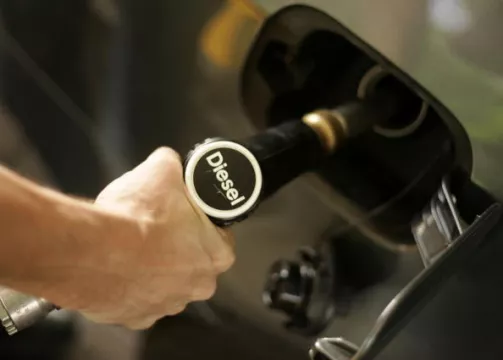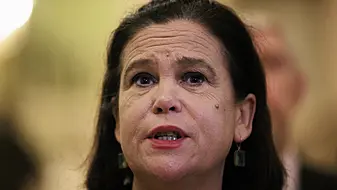The price of a litre of diesel could spike by as much as 50 cents by 2030, if EU plans to use international carbon markets to set pricing carry on.
That is the conclusion of the Cambridge Trust for New Thinking in Economics. The Trust, which was originally set up by economist and environmental campaigner Terry Barker, has warned that “there is the potential to leave low-income households ‘stranded’ using heavily-taxed fossil fuel technologies as a result of the high up front costs of low-carbon alternatives or energy renovations, and other barriers to take-up such as the lack of incentives for landlords to invest in these technologies."
According to the study, diesel price hikes of 50c a litre, and a doubling of home heating bills, on average, could be seen in 2030 if the EU relies only on carbon markets to achieve emissions cuts in road transport and homes. The EU carbon price would reach an estimated €180 per tonne by 2030 under such a plan.
Low-carbon economy
While higher prices for fossil fuels are likely inevitable in the coming years, both as a consequence of the move towards a low-carbon economy, and as something of a stick to further encourage that move, such a major price rise could cause havoc for Irish families.
“The AA has seen a steady rise in petrol and diesel prices since the start of the pandemic, driven by a combination of the end of the temporary VAT reduction earlier this year and the steady increase in crude oil prices,” said Paddy Comyn, AA Ireland’s head of communications.
“The average price of diesel around the world is 85 cents per litre, and in Ireland, it is 136 cents per litre which is 60 per cent higher, which pretty much all can be attributed to taxation. Any further increase, especially to the level being talked about here, would be devastating to the typical Irish motorist.
“We must remember that back in 2008, Irish motorists were effectively taxed into choosing diesel cars by the government at the time. The last data we had in relation to the Irish national fleet showed that there were almost 2.2 million cars on Irish roads and 54 per cent of these have diesel engines.
'Taxed off the road'
"Ten years ago in Ireland, 71 per cent of new car sales were diesel. On a major Irish used car site today, 56 per cent of the 36,000 used cars for sale are powered by diesel engines. There are many motorists out there, already paying some of the most punitive taxes to run a car, now facing the prospect of being taxed off the road by this. All this would serve to do is increase living costs for people across Ireland who are reliant on their ordinary, modest cars – for example, the cost of filling-up a standard Volkswagen Golf diesel with a 50-litre fuel tank would rise from €68 to €93.”
The consequences would not merely be that filling up a family car would be far more expensive, according to the Trust — there would be problems at home, too thanks to a knock-on effect on the cost of home heating. “Such costs have a major impact on poorer households; both because they spend a greater proportion of their incomes on heating, but also because reductions in demand by these households are more likely to lead to underheating and resultant detrimental social and health outcomes.”
Emissions trading
The Trust says that such impacts could be potentially avoided by combining carbon limits with a ‘recycling’ of tax revenues from more expensive fossil fuel products, such as greater incentives and support for switching to electric vehicles, or to renewable home heating products. “When Emission Trading System (ETS) revenues are recycled, the direction of impact switches; because the higher cost of emitting CO2 is compensated by revenues used for tax reductions and other supporting measures, meaning that the revenues ultimately end up back with consumers, who can spend them on goods and services across the economy.
"The ‘rebound’ effect in consumer spending, and ultimately GDP, leads also to upward pressure on the ETS price, as higher economic activity is forced to contend with a fixed emissions cap in both existing ETS sectors and current non-ETS sectors” said the Cambridge report.
Carbon markets
Sofie Defour, climate manager at environmental think-tank Transport & Environment (T&E), said: "This study shows how foolish it would be to rely only on carbon markets to clean up transport. There is a role for carbon pricing, but that's mainly in support of more effective policies like car emissions standards, and certainly not at these price levels. The EU’s Green Deal can be an example to the world of how to do a swift and just transition, but only if it uses the right tools.”
Increasing national climate targets – which would oblige governments to phase out fossil-fuel company cars, invest in clean modes like rail, and take other measures – is a much more effective and equitable way of meeting the 2030 climate goals, the study finds. The EU could increase disposable incomes across society and grow the economy 2% (GDP) if it relies more on national climate targets to meet its 2030 goals.
T&E said a capped carbon price – at EU or national level – could help reduce emissions from road transport, but only in tandem with legally binding and ambitious national targets under the Effort Sharing law. Revenues raised through a limited carbon price would need to be invested in low-carbon technology – like retrofitting buildings – but should also be ‘recycled’ back to citizens through discounts on electricity bills or ‘climate dividend’ payments.
Ms Defour said: “The heavy lifting needs to come from things like emissions-free cars, rapid electrification and building up a world-class charging network. That can be delivered by increased national climate targets, stringent pollution limits for cars and buildings and a carbon price that brings people on board by starting slow and giving back the money.”







